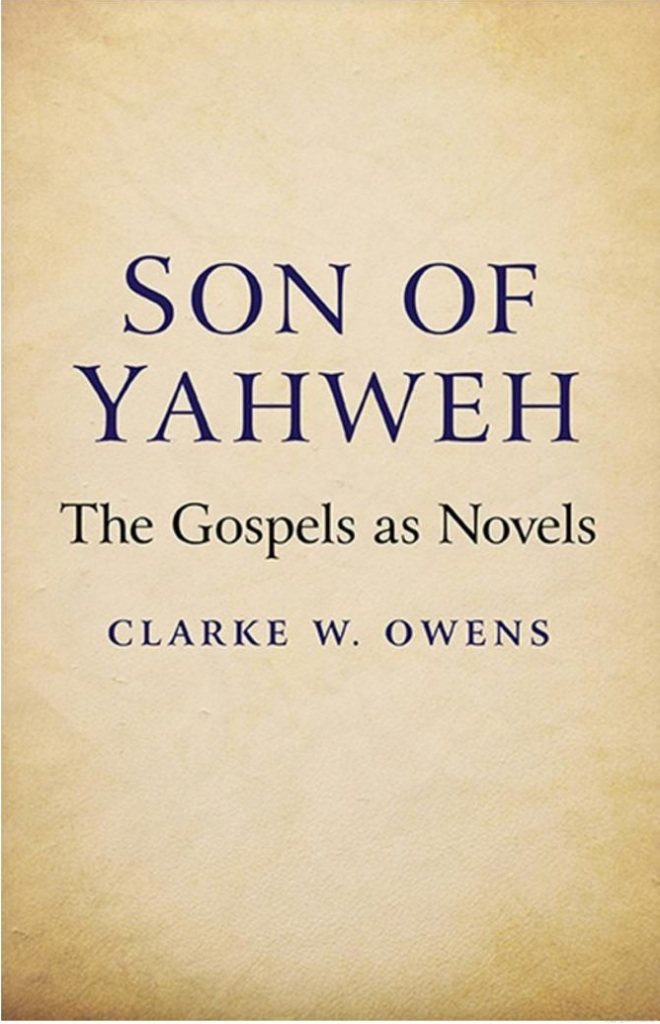 A blog reader has alerted me to a book by Clarke W. Owens, Son of Yahweh: The Gospels as Novels, that I have found contains some very worthwhile nuggets for anyone interested in understanding the nature of the Gospels as either literature or historical documents.
A blog reader has alerted me to a book by Clarke W. Owens, Son of Yahweh: The Gospels as Novels, that I have found contains some very worthwhile nuggets for anyone interested in understanding the nature of the Gospels as either literature or historical documents.
The Amazon page says Clarke Owens has “three degrees in English and a law degree”. Ever since the appearance of lawyer Frank Morrison’s Who Moved the Stone I would have thought a law degree in biblical studies would have been a liability when it came to the credibility stakes, but I am impressed with anyone who has three degrees in English. (A website says one of them is a doctorate.) Such a person ought to understand how literature works, whatever the language. So I purchased the Kindle version and have up till now read a third of the work. I have liked most of what I have read so far and I’ll tell you why.
And these notes are only from the Introduction! So I am hoping for even more rewards as I read further.
But first, the motive. . .
I do not advance this idea with the purpose of antagonizing the devout, but out of a genuine and long-standing interest in the nature of the Bible as a literary artifact. (Owens, Clarke W. (2013-07-26). Son of Yahweh: The Gospels As Novels (Kindle Locations 149-150). Christian Alternative. Kindle Edition.)
My motive is the same. I am not the least interested in attacking anyone or the sincerity or the devout faith of anyone. This post is made public for the interest of likeminded people who wish to discuss the matter critically and to deepen our understanding of the nature of the Bible.
1. Use of Fantasy
Fantastic details are the most obvious indicator that we are reading fiction. Clarke reminds us that even many Christian believers consider the virgin birth (a narrative created in an effort to fulfill a supposed prophecy in the Greek version of Isaiah 7:14) to be pious fiction.
Of course biblical historians are quick to defend the Gospels by asserting that they are no different from other ancient historical works in that accounts of miracles are found in both. This is a point Clarke addresses in his next chapter. For now, however, I would point out that the Gospels are very different types of literature from historical writings of the day, and the way miracles are presented in surviving Greek, Roman and Jewish historical writings bears little comparison with the way they are presented in the Gospels.
When theologians and historians of the New Testament say otherwise — as they often do — I think they are demonstrating either their ignorance or their disingenuousness. I will discuss this in more detail when I come to Clarke’s next chapter.
In a future post we will look at Clarke Owens’ closer comparison of the Gospels with the writings historians rely upon to conclude the historical existence of other ancient persons and see exactly how different the two types of literature are — a chorus of a thousand theologians notwithstanding.
